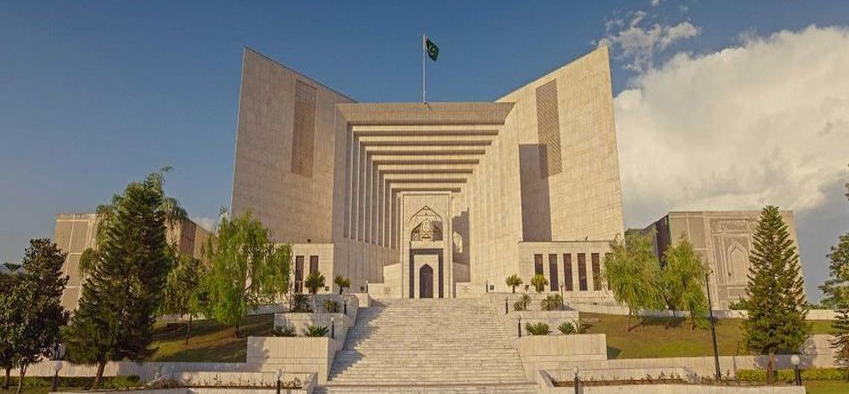Any Penal Action, such as denying an Election Symbol, must be interpreted narrowly and cannot be extended to affect other rights not explicitly covered by the Statute --- Supreme Court of Pakistan
Islamabad 27-09-2024: In a landmark judgment, the Supreme Court of Pakistan has ruled in favor of the Pakistan Tehreek-e-Insaf (PTI), declaring that the Election Commission of Pakistan’s (ECP) decision to treat PTI candidates as independent candidates due to intra-party election issues was unlawful. The Court, in its detailed judgment, emphasized that PTI’s rights to proportional representation in reserved seats were violated and ordered the Election Commission to rectify the matter.
A full-bench headed by Mr. Chief Justice Qazi Faez Isa ruled that the denial of an election symbol to PTI did not affect its other constitutional rights, including the right to contest elections and be allocated reserved seats for women and non-Muslims. The Court also invalidated certain provisions of the Election Rules 2017, stating that the ECP overstepped its authority in excluding PTI from proportional representation.
The judgment revolved around several key legal issues, including the scope of Section 215(5) of the Elections Act, 2017, which was invoked by the ECP to declare PTI ineligible to receive an election symbol. The Court clarified that this penalty only impacted the allocation of the election symbol but did not extend to denying PTI other rights under the Constitution.
The Court stated that the ECP’s Explanation to Rule 94 of the Election Rules 2017, which restricts proportional representation based on the allocation of election symbols, was ultra vires of the Constitution. The Court observed that the ECP’s actions resulted in a violation of PTI’s fundamental rights, including the right to political participation and proportional representation.
The case arose from the ECP’s decision in December 2023 to withhold the PTI’s election symbol due to intra-party election disputes. This led the ECP to treat PTI’s candidates as independents during the 2024 General Elections, despite PTI’s claim that this move was unjust and violated their constitutional rights. The Supreme Court of Pakistan, in its ruling, emphasized the importance of proportional representation, declaring that the reserved seats for women and non-Muslims should have been allocated to PTI.
In addition to the core issues of election symbols and proportional representation, the Court reiterated the principle of strict construction of penal statutes. It emphasized that any penal action, such as denying an election symbol, must be interpreted narrowly and cannot be extended to affect other rights not explicitly covered by the statute.
The Supreme Court of Pakistan was critical of the ECP’s handling of the situation, stating that as a “guarantor institution” of democratic processes, the ECP failed to uphold its constitutional responsibility. The judgment emphasized that the Commission’s primary duty is to ensure free and fair elections and to protect citizens’ right to vote and political participation.
The Court further stated that the ECP’s actions, including treating PTI candidates as independent and denying PTI its due share of proportional representation in the reserved seats, were unlawful and unconstitutional. The Court ordered the ECP to correct the allocation of reserved seats to reflect PTI’s actual electoral performance.
The judgment provides substantial relief to PTI, ordering the ECP to allocate the reserved seats for women and non-Muslims based on PTI’s actual vote share, thereby restoring its proportional representation in the National and Provincial Assemblies. This decision is expected to have wide-reaching implications for future election disputes, reinforcing the need for the Election Commission to act impartially and within the bounds of the law.
This ruling is seen as a significant victory for PTI, which had claimed that the ECP’s actions were politically motivated and aimed at disenfranchising its voters. The Court’s decision reaffirms the centrality of free and fair elections in a democratic system and underscores the judiciary’s role in protecting electoral integrity.
This case is expected to set a precedent for how election disputes involving political party symbols and intra-party disputes are handled in the future, further strengthening the rights of political parties and the electorate in Pakistan’s democratic framework.
Powered by Froala Editor








